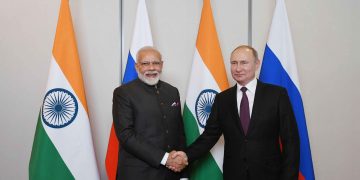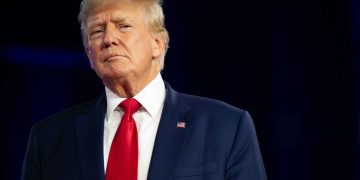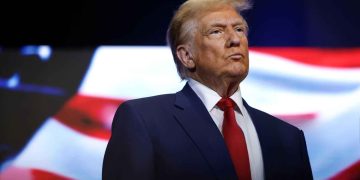The BRICS economic alliance, consisting of Brazil, Russia, India, China, and South Africa, has intensified its efforts to reduce dependence on the U.S. dollar by advancing alternative financial systems. This movement, often termed “de-dollarization,” aims to create a more efficient international payment system, with a strong focus on blockchain technology. Reports suggest that this new system could potentially engage over 159 foreign participants, signaling a significant shift in global financial dynamics.
A Strategic Shift Toward De-Dollarization
Throughout 2024, BRICS has been actively developing alternative financial networks, with discussions centered on creating a seamless payment system that operates independently of the dollar. Many reports suggest that blockchain technology could serve as the backbone for this system, providing faster, more transparent transactions. The system would prioritize non-dollar currencies, such as the Russian Ruble and Chinese Yuan, furthering the alliance’s de-dollarization agenda.
One of the driving factors behind this initiative is the desire for a more independent and decentralized financial network. By moving away from traditional dollar-dominated frameworks, BRICS aims to establish a system that allows member nations to trade more equitably. The integration of blockchain technology could also lower transaction costs and improve efficiency in cross-border trade.
Despite substantial progress, there has been confusion regarding participation numbers. Early reports inaccurately claimed that 159 countries had already joined the BRICS payment system, leading to widespread misinformation.
Clarifications on Participation
A widely circulated report mistakenly quoted Elvira Nabiullina, Governor of the Bank of Russia, as stating that 159 countries had signed onto the BRICS network. Russian officials later clarified that the figure referred to participants in Russia’s Financial Messaging System (SPFS), an alternative to SWIFT, which includes over 160 entities from 20 countries.
Following the clarification, RT, a Russian news outlet, apologized for its earlier misreporting and corrected the information, emphasizing that the 159 participants were not part of the BRICS payment system.
SPFS Expands Internationally
Russia’s SPFS has been growing, with over 160 foreign participants from 20 countries, including financial institutions from nations like Cuba, Armenia, and Kazakhstan. This expansion reflects Russia’s strategic efforts to reduce its dependence on Western financial systems and strengthen ties with countries that share similar economic and political interests.
Cryptocurrencies and BRICS’ Vision
As BRICS pushes forward with its de-dollarization agenda, the potential role of cryptocurrencies within this new financial ecosystem is becoming more apparent. Russia has made strides in legalizing crypto mining, which could support its international trade ambitions. The country is also planning to launch two national cryptocurrency exchanges to facilitate cross-border transactions.
India, another key member of the BRICS alliance, is also developing a regulatory framework for cryptocurrencies, signaling its growing interest in blockchain technology for international trade. These steps reflect a broader trend among BRICS nations, as they explore digital assets to strengthen their financial autonomy.
Looking Ahead: A New Financial Era for BRICS
BRICS’ efforts to build alternative financial systems and pursue de-dollarization could significantly impact the global economy. By incorporating blockchain technology into international payments, the bloc aims to enhance the efficiency, transparency, and security of cross-border transactions.
While challenges, such as regulatory clarity and effective communication, remain, the progress made by BRICS is noteworthy. As more countries show interest in joining these efforts, the potential for a more diversified and equitable global financial system continues to grow. The success of BRICS’ de-dollarization initiatives will depend on its ability to attract global participation and maintain stability within its alternative financial networks. The growing integration of blockchain and cryptocurrency technologies positions BRICS as a key player in the future of international trade and finance.





















